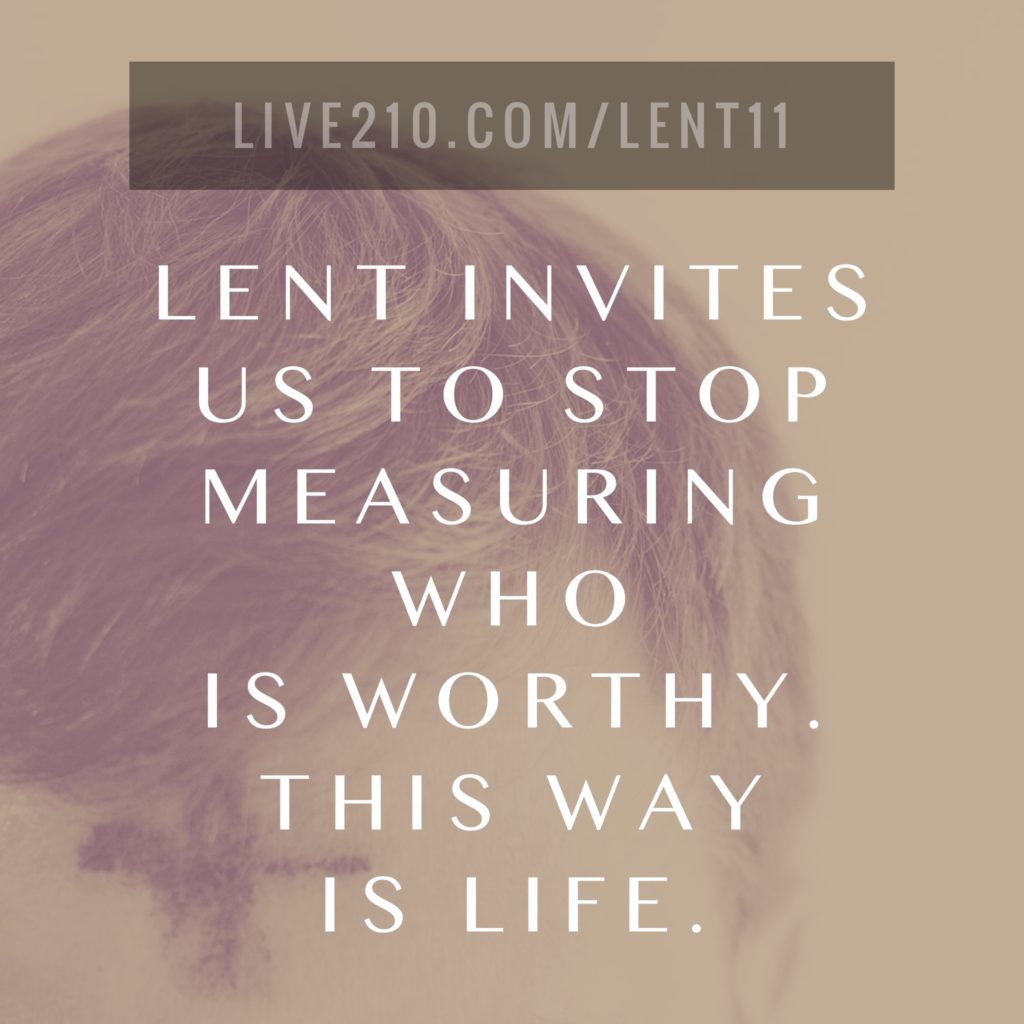4 min. to read.
Today is the 11th day of Lent. Today’s scripture is Matthew 20:1-16, the parable of the vineyard owner who hired workers throughout the day but paid them all the same. Wha’s up with that?
This parable is vexing. Jesus makes nobody happy with this story. There are stacks and stacks of vastly different interpretations that wildly disagree, showing how much work we’ve done to manage the offense of the parable.
In his book The Unvarnished Jesus, Brian Zahnd calls this “Jesus’ most scandalous parable” and says that “if the parable came from anyone else, most American Christians would dismiss it as Marxist propaganda.” He summarizes the narrative quite simply: “In this parable, Jesus says that the kingdom of heaven is like a person who worked only one hour being paid the same as a person who worked all day.”
That’s the story, for sure. Some interpreters, looking from the perspective of those last-hour laborers, see this as a parable teaching grace. This interpretation often strips the economic aspect out of the parable, spiritualizing it. If the parable is about grace, the landowner is the hero—the God-figure—and we (maybe the Gentile church?) are the last-hour laborers receiving something we didn’t work for.
Other interpreters, looking from the perspective of those early-morning-laborers, see this as a story about exploitation. If the parable is about exploitation, there is no hero or worthy God figure. The owner and the worker all fail to be their brother’s keeper. The owner should have paid a fair wage to everyone. The workers should have banded together to make sure every one of them had their needs met. The proposal made with this interpretation is that in the Kingdom of God, economic exploitation doesn’t happen, and we bear one anothers’ burdens.
Still other interpreters merge these justice and grace. To get there, you have to assume that the amount paid to the early workers was not an exploitative wage. At the day’s end, everyone was paid the same. Yes, that was unfair, but because the initial wage was a good one, the employer falls on the side of generosity. In this reading, the parable’s focus falls on the early morning workers who are angry about this generosity. They seem to echo the actions and attitudes of the older brother in Luke’s Lost Son parable. They have worked all day long. They have carried the load. Why are they being mistreated?

Regardless of how you think this parable ought to be read, keep this in mind. Parables are designed to create an opportunity to see yourself more accurately. They are mirrors. The truth revealed is often located in our gut reaction to the story.
Do we jump into this parable in the place of the aggrieved workers? Seeing ourselves as honest workers who have done our share, and the power structure is taking advantage of us?
Do we jump into the place of the late workers, just happy to have a job and thrilled to receive unexpected generosity?
Do we jump in as the landlord, choosing generosity even though others will think us unfair?
Where do we find ourselves? If we can set aside the interpretive debates, the parable can do its work in us.
Most naturally, I am the bitter worker, thinking that others are being given what I myself deserve. There are so many spreadsheets in my head calculating who is worthy and who is not–including myself. I’ve moved past this mindset in (most of) my theology, but I can still feel it viscerally. Some days I have to make a conscious decision to be generous. Sometimes I have to choose to act in opposition to my discomfort at the idea of people getting something “for free” and how that might be taking advantage.
The calculus of merit is a program I’ve been running subconsciously my whole life. It’s taking a work of God and the long path of emotional healing to notice it and (begin to) let it go. Maybe this same calculus is burdening your heart. It can infiltrate our relationships, parenting, work ethic, and even the politics we cling to. It feels like justice, but tracking it all and holding the bitterness is truly a burden of the soul.
Lent invites us to stop measuring who is worthy. This way is life.

Marc,
Thank you for sharing your reflections regarding Lent. I not only find each one a definite challenge to my soul, but I feel as though I’ve been awakened! Your reflections seem to be the catalysts leading me out of the rut of apathy as it relates to choosing to let my heart engage with Jesus once again.
I truly appreciate your effort and your generosity in sharing your journey during Lent. I appreciate your heart!
Wow, Donna. Thanks for taking a moment to share this with me. I’m so thrilled these meditations are proving helpful to you. Trust the slow and gentle work of Jesus in your soul. Blessings.